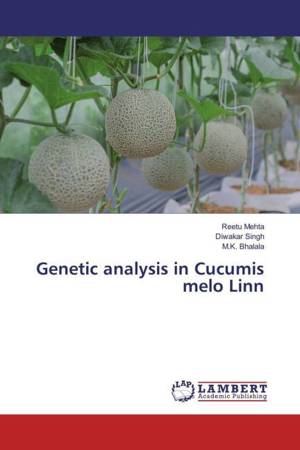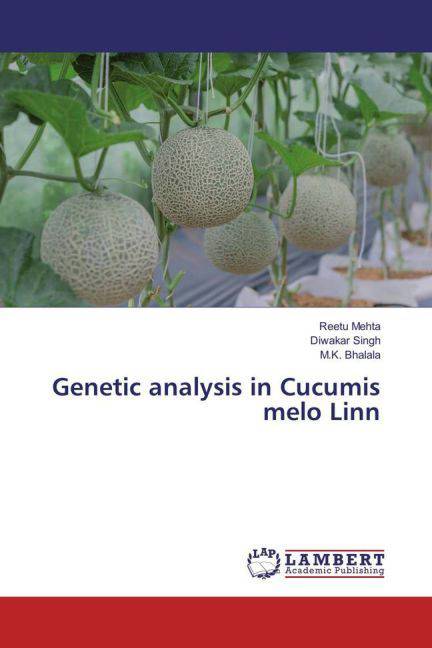
- Afhalen na 1 uur in een winkel met voorraad
- Gratis thuislevering in België vanaf € 30
- Ruim aanbod met 7 miljoen producten
- Afhalen na 1 uur in een winkel met voorraad
- Gratis thuislevering in België vanaf € 30
- Ruim aanbod met 7 miljoen producten
Zoeken
€ 35,45
+ 70 punten
Omschrijving
Muskmelon (Cucumis melo Linn.) is one of the important but under exploited vegetable crop. In 'Ayurveda' and 'Unani' medicines, muskmelon is stated to possess a cooling effect on the body system. Further, it is a demulcent, diuretic and aphrodisiac. It is applied as a lotion in several skin conditions. The roots have emetic and purgative properties. Inspite of the fact that muskmelon is grown extensively and have aesthetic value, not much work has been done on the improvement of complex quantitative characters such as fruit yield, its components and quality of fruits. Like other cucurbitaceous crops, there is ample scope for its improvement, particularly in fruit yield through a breeding programme. But very little systematic attempts have been made to improve the existing land races. The present investigation was undertaken to obtain genetic information like genetic variability, correlation coefficient, path analysis and genetic divergence in muskmelon.
Specificaties
Betrokkenen
- Auteur(s):
- Uitgeverij:
Inhoud
- Aantal bladzijden:
- 76
- Taal:
- Engels
Eigenschappen
- Productcode (EAN):
- 9783330082977
- Uitvoering:
- Paperback
- Afmetingen:
- 150 mm x 220 mm

Alleen bij Standaard Boekhandel
+ 70 punten op je klantenkaart van Standaard Boekhandel
Beoordelingen
We publiceren alleen reviews die voldoen aan de voorwaarden voor reviews. Bekijk onze voorwaarden voor reviews.











